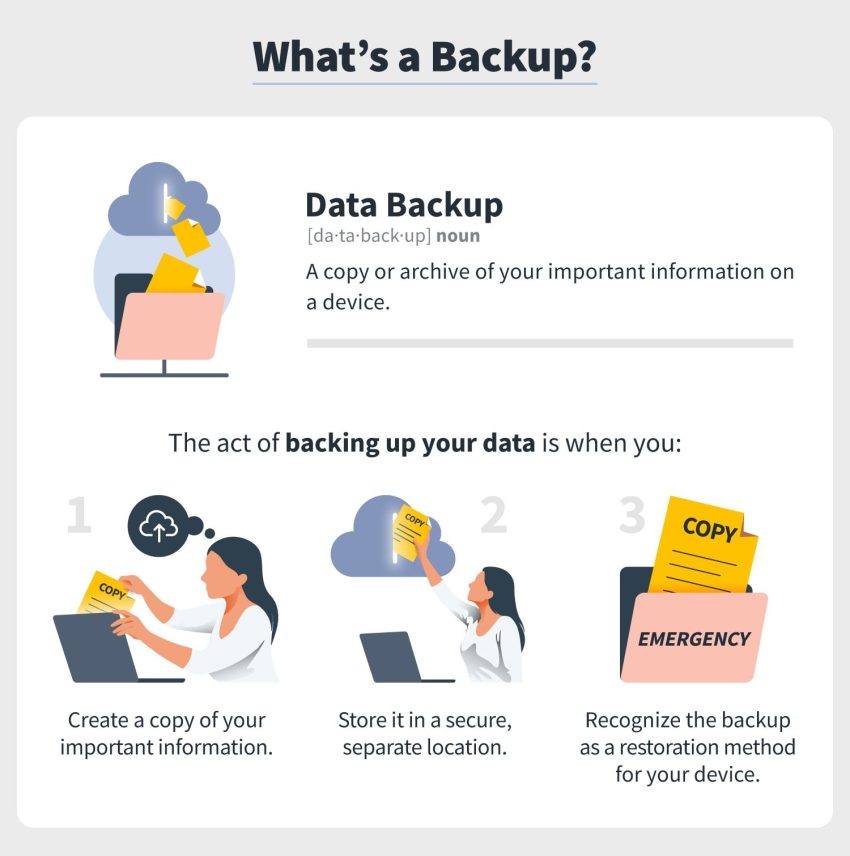Data Backup and Recovery Strategies: Protecting Your Assets

In today’s digital age, data has become one of the most valuable assets for individuals and businesses alike. From personal photos and documents to critical business files and customer information, data loss can be disastrous. Therefore, it is crucial to have effective data backup and recovery strategies in place to ensure the protection and availability of your valuable assets.
The Importance of Data Backup
Data backup serves as a safety net against various threats and vulnerabilities that can lead to data loss. Here are a few reasons why data backup is essential:
1. Hardware Failure:
Hardware failures are inevitable. Whether it’s a failed hard drive, power outage, or a system crash, losing data due to hardware failure is a significant risk. Having regular data backups allows for quick and easy recovery in such situations.
2. Accidental Deletion or Corruption:
Mistakes happen. Accidentally deleting important files or having them corrupted can be devastating. With backups, you can easily restore the lost or damaged data, minimizing downtime and ensuring business continuity.
3. Cyber Threats and Ransomware Attacks:
The rise in cyber threats and malicious attacks, such as ransomware, has made data security a top concern. Regular backups can prevent data loss caused by these attacks, allowing you to restore your system to a safe state without succumbing to ransom demands.
Choosing a Data Backup Strategy
There are various data backup strategies available, each offering different levels of protection and recovery options. Here are a few commonly used backup methods:
1. Full Backup:
A full backup involves creating a copy of all data and files on a regular basis. While this method provides complete restoration, it can be time-consuming and requires significant storage space.
2. Incremental Backup:
With incremental backups, only the changes made since the last backup are saved, reducing the backup time and storage requirements. However, recovering from an incremental backup may take longer since it requires restoring each backup set.
3. Cloud Backup:
Cloud backup solutions offer secure off-site storage for your data. It eliminates the need for physical storage devices and provides easy accessibility from anywhere with an internet connection. However, ensure that the chosen cloud provider has robust security measures in place to protect your data.
Implementing a Data Recovery Plan
Having backups alone is not enough. A comprehensive data recovery plan is essential to minimize downtime and ensure a quick restoration of your assets. Here are a few crucial steps to consider when implementing a data recovery plan:
1. Document Data Recovery Processes:
Define step-by-step procedures for recovering data from backups. Documenting these processes enables efficient recovery and ensures consistency across your organization.
2. Test Restoration Process:
Regularly test your restoration process to verify the integrity of your backups and ensure that the recovery procedures are functioning correctly. This allows you to identify and address any issues before a disaster occurs.
3. Prioritize Critical Data:
Identify and prioritize the critical data that requires immediate restoration. Determine the Recovery Point Objective (RPO) and Recovery Time Objective (RTO) for each type of data, ensuring that your recovery plan aligns with your business needs.
4. Off-Site Storage and Redundancy:
Storing backups off-site helps protect your data from physical disasters, such as fires or floods, that could damage both the original data and the backups. Additionally, consider implementing redundancy by maintaining multiple backup copies in separate locations for an extra layer of safety.
Conclusion
Data backup and recovery strategies are indispensable for safeguarding your valuable assets against a wide range of threats. By implementing an appropriate backup strategy and establishing a robust data recovery plan, you can minimize the risks of data loss and ensure business continuity. Remember, it’s not a matter of if a disaster will strike, but when, so be prepared!


